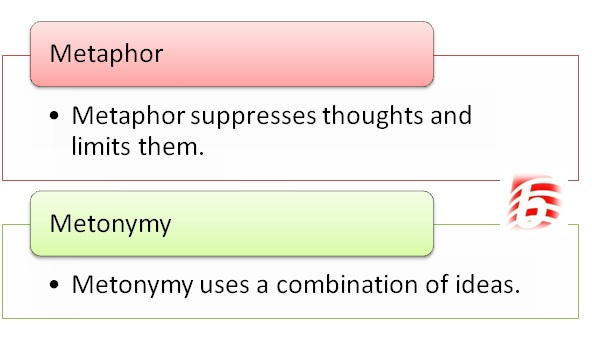Metaphor vs Metonymy
Metaphor and metonymy often cause confusion due to their interchangeable usage. Both are frequently used, but one associates while the other substitutes.
Metaphor
Metaphor is a substitution that uses another word to describe the subject. It is an expression showing the similarity or closeness of two things, subjects, or events. In simpler terms, metaphor is an expression that uses a word to describe a different aspect. An example would be: “The world’s a stage.”
Metonymy
On the other hand, metonymy is the association of words and is used to define a particular word. Metonymy is the figure of speech where a different word is used, which is linked to the original word. In simpler terms, metonymy replaces words that are closely associated with the original word. In ancient Greek, ‘meta’ means change, while ‘onoma’ refers to the name.
Key Takeaways
- Metaphor is used by substitution, while metonymy is by association.
- Metaphor suppresses thoughts and limits them, while metonymy uses a combination of ideas.
- In metaphor, there is a transference of ideas and characteristics, while in metonymy, there is none.
